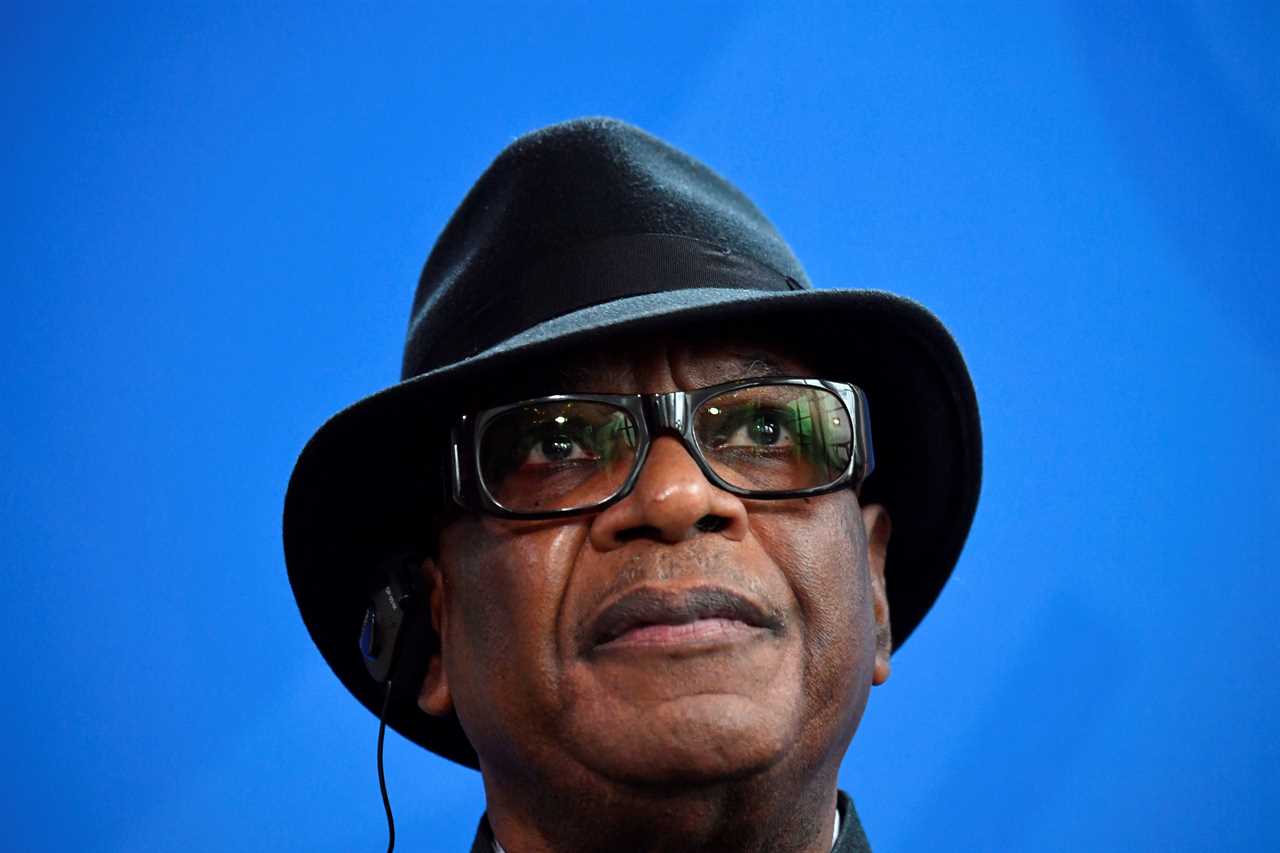
Malian President Ibrahim Boubacar Keïta. Photo by John Macdougall/AFP via Getty ImagesDays after Mali was placed under heavy sanctions by the Economic Community of West African States to punish the military junta’s reluctance to conduct elections, citizens woke up on Sunday, 16 January 2022 to news of the death of former president Ibrahim Boubacar Keïta.
Keïta, who was ousted in 2020 by the army after seven years in power, died in his Bamako home, aged 76.
Read more:
Rising instability in Mali raises fears about role of private Russian military group
He served as president of the republic from 4 September 2013 to 18 August 2020. However, his influence in Malian politics had been considerable for over three decades.
Early years
Keïta had his primary, secondary, high school and university education in Mali, Senegal and France.
He returned to Mali in 1986 with a master’s degree in history and a diploma of advanced studies in politics and international relations from the University of Pantheon-Sorbonne.
During his stay in France, Keïta frequented French radical left-wing political circles, where he became friends with Alpha Condé, who later became Guinea’s president.
Upon his return to Mali, his first jobs were with French and international NGOs. At the same time, Keïta was an activist of the Alliance for Democracy in Mali – Pan-African Party for Liberty, Solidarity and Justice.
He also held the position of deputy campaign manager for Alpha Oumar Konaré’s presidential election in April and May 1992.
The road to the top
For his effort during these campaigns, President Konaré decided to appoint him in June 1992 as his diplomatic advisor and spokesperson. Less than six months later, in November 1992, Keita was sent out of the country as Mali’s ambassador, first to Ivory Coast, then later to Gabon, Burkina Faso and Niger.
Keïta’s stay abroad lasted only one year. In November 1993, he was recalled to take over the Ministry of Foreign Affairs.
On 4 February 1994, Konaré appointed him prime minister. He held this position until February 2000.
Keïta rose to the top of the Alliance for Democracy in Mali – Pan-African Party for Liberty, Solidarity and Justice and became its president in 2000.
In the run up to the 2002 presidential election, Keïta wanted to run as a candidate to succeed Konaré. This led to disagreements within the party.
Keïta resigned as prime minister on 14 February 2000, and then from the party’s presidency in October 2000.
He later left the party to create his own party, the Rally for Mali.
Keïta was the Rally for Mali candidate in the 2002 presidential election. He obtained 21% of the votes cast in the first round. This placed him third, behind Amadou Toumani Touré (28.7%) and Soumaïla Cissé (21.3%).
Nevertheless, Keïta’s coalition won the most seats in the legislative elections, which enabled him to be elected president of the National Assembly from 2002 to 2007.
In 2007, Keïta contested for the presidency again. He stood against the incumbent, Touré, and lost.
Read more:
France has started withdrawing its troops from Mali: what is it leaving behind?
In early 2012, terrorist groups took control of the entire north of Mali. This led to a coup against Touré in March 2012.
Following the military intervention in Mali, the interim president Dioncounda Traore organised a presidential election.
Keita stood for election and won this time to emerge as president of the republic in 2013. He was re-elected in 2018.
He ran on the campaign slogan of returning honour to the country. Keita promised to “reconcile hearts and minds” and ensure unity in the deeply divided West African country.
He also promised to rebuild the country’s infrastructure, some of which was damaged by terrorist actions.
The legacy
Keita’s government suffered from endemic corruption and illicit enrichment.
This became even more pronounced after the peace agreement signed in Algiers, which offered partial autonomy to the north of the country. The agreement was aimed at ending hostilities with rebels in northern Mali.
On 5 June 2020, the Malian capital, Bamako, witnessed a large-scale protest rally calling for the resignation of Keita.
Protests were followed by a coup led by Colonel Assimi Goïta on 18 August 2020. The military garrison arrested Keita and he relinquished power under pressure from the army.
The crisis that followed is yet to be resolved. Today, Mali is under heavy sanctions due to the perceived reluctance of the military junta to quickly organise elections and yield to a democratically elected government.
Read more:
Mali: top 5 implications of the latest palace coup
The transitional government has presented its condolences to Keita’s family, while the country reels under ECOWAS sanctions and arm wrestling with France, a fallout of the refusal of its military rulers to conduct elections.

Mady Ibrahim Kanté does not work for, consult, own shares in or receive funding from any company or organisation that would benefit from this article, and has disclosed no relevant affiliations beyond their academic appointment.
-------------------------------
By: Mady Ibrahim Kanté, Lecturer, Université des sciences juridiques et politiques de Bamako
Title: Ibrahim Boubacar Keïta promised Mali honour and unity: his legacy is disappointing
Sourced From: theconversation.com/ibrahim-boubacar-ke-ta-promised-mali-honour-and-unity-his-legacy-is-disappointing-175151
Published Date: Thu, 20 Jan 2022 13:22:39 +0000
Read More
Did you miss our previous article...
https://badpoliticians.com/world-politics/jagmeet-singh-takes-the-hot-seat
 UK PoliticsWorld PoliticsVideosPrivacy PolicyTerms And Conditions
UK PoliticsWorld PoliticsVideosPrivacy PolicyTerms And Conditions
